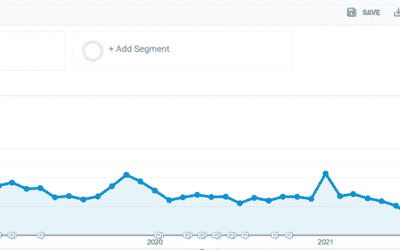Introduction
You’ve worked hard to deliver your new website. Pouring dozens of hours of your valuable time, and perhaps thousands of pounds of your hard-earned cash, into what is now your beautiful new creation that is going to wow the world.
You’re ready and waiting for it to boost your business.
Job done? Feet up and start waiting for the pennies to roll in – right?

Far from it. Your new website should be a constantly evolving entity, one that you change regularly. You should be on the lookout for issues that might impact the experience your visitors have, or which might stop search engines from spidering your site.
Like so many aspects of your business life – once it stops growing, it starts dying!
So here are a few pointers to not only keep your website alive but to make the good… even better.
Some New Website Management basics to begin with
- Google Analytics – you need to know how much traffic your site is getting, which pages are being read, and where your traffic is coming from. So, get yourself a free Google Analytics account, add a little code to your site, and start monitoring how your site is being used. This will guide you towards which pages to improve.
- Google Search Console (aka Webmaster Tools) – more data, tools, and diagnostics than you can shake a stick at. Another free tool from Google. Great for helping to see which search terms are being used to find your site, and in what position your site appears for those terms. Also useful for being alerted to any issues that Google sees with your site – such as mobile issues, hacking and crawling problems. Get an account, look at it regularly, and take action when required. Take a look at the Bing Webmaster Tools equivalent too.
- Inbound Social Media links – for most businesses, their website should be their ‘money site’, and the hub for their digital activity. This means that all of your social media profiles should point clearly at your website. Think of your new website as being the hub of your ‘digital wheel’ and your social media profiles being the spokes.
- Sitemaps for search engines – these aren’t the same as the lists of pages and posts that visitors can find on your website (although it’s not a bad idea to have one of those too!). The Sitemaps we are talking about here are built using a specific syntax (XML) and are used by search engines to know what pages and posts they should come and spider. Search engines will still find your content, even if you don’t use XML Sitemaps, by following external links to your site and internal links within your site (e.g. in your navigation). However, XML sitemaps will get them to find it quicker AND will give you a chance to tell search engines how often they should come back to look at a page to see if it has changed. You should aim to create XML sitemaps that are automatically updated whenever you edit your site – platforms such as WordPress have plenty of plugins that will help you do this. Otherwise, there are plenty of XML Sitemap generation tools you can use.
- Backups – the importance of having a cycle of working backups of your website files and database cannot be underestimated. If your site ever breaks or gets hacked, you might have to start from scratch again if you don’t have reliable backups. Here’s our guide to creating a website backup strategy. Never assume backups are being taken for you – if you’re not doing them, make sure you know that someone else is!
Regular Website Maintenance
Whether you schedule some time weekly, or monthly, to work on your site, here are a few things to look at:
- Software updates – the backbone of any long-term successful website is its system software. Mostly, your hosting company should keep your system software up-to-date – ASK YOUR WEB HOST WHAT THEIR POLICY IS – but you may also need to keep other aspects up-to-date yourself, especially if you’re using a Content Management System such as WordPress, Joomla or Drupal. Your site will be easier to hack if you let things slip. There is always a danger that upgrading one piece of software will break something in your site. Generally, it’s more advantageous to update the software and fix any bugs arising than it is to not update the software! This leads us nicely on to…
- Regular website security checks – hacking is highly prevalent; don’t think that it only happens to others. People come to us to fix hacked sites pretty much every week. Many hacks can go undetected for a long time but can lead to issues for your brand and your visitors. We have seen many examples of sites being suspended by website hosting companies due to a hack, as a hacked website has the potential to infect other sites on the same server. Website security is a huge topic on its own, so I’m not going to cover it in detail here, but Sucuri offers a useful free tool for checking to see if your site is hacked.
- Broken links – these are links on your website to other pages on your site, or to external sites, which no longer work. This happens when pages are removed over time, or when their URL changes. Broken links provide a poor user experience, which can lead to your site being slightly penalised by search engines. Use your webmaster tools to spot them, or (if you’re a WordPress user) install a plugin to notify you when they occur. Check out our fixing broken links and improving your user experience here.
- Content, content, content – keep your content fresh and current. This keeps your regular visitors coming back, and shows new visitors your site is still active – how many times have you visited a website to find the latest content is a couple of years out of date? How long did you stay on those sites? So, develop a regular habit of adding new content (blog posts are a great way to do this) and refreshing some of your older content if it is no longer relevant. Use what your Analytics are telling you to decide which pages to improve, and what new content to write. Adding regular new content is also a great way to tell search engines that yours is an active site that they need to spider often!
- Search engine marketing and other paid traffic – quite often, especially in the early stages of a website lifecycle, new website owners turn to services like Google Adwords to deliver traffic to their site. These services are great and can deliver good quality traffic whilst you’re building up your organic search traffic. However, make sure you monitor your campaign on a regular basis to make sure you’re not paying over the odds for traffic that you are never going to convert. Try not to pay for the keyword terms that are ranking high for you organically; Try to add negative keywords for terms that you don’t want to pay for (e.g. ‘free’, ‘cheap’); Remove keywords that just aren’t converting for you… and remember to set up some tracking on your website so that you know where your conversions are coming from!

Never stop evolving your website!
Your involvement should not finish the moment your new website goes live.
In fact, you’ll most likely ultimately spend more time maintaining and managing it than you spent developing it in the first place. So get into the habit of spending time each week (or at least each month) to work through the bits and pieces we’ve mentioned above.
Perhaps you’d like to read our article on the cost of owning a website.
If you find the thought of regular maintenance a bit daunting for your new website, you can always ask us to do it for you. It doesn’t have to cost a lot, but it will save you a lot of time, as well as give you the peace of mind of knowing that website management experts are looking after your site. Just get in touch through the form at the bottom of this page and we’ll give you a quote.






0 Comments